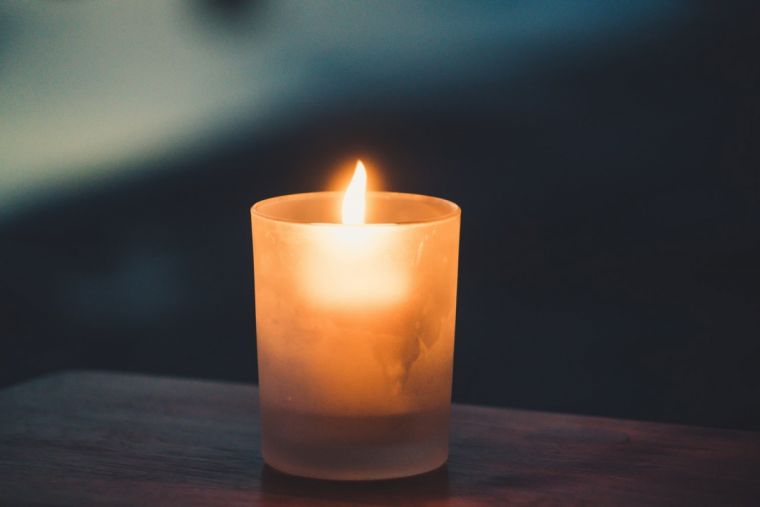Lessons in hope from a dark moment in history

Holocaust Memorial Day is always a moving and humbling occasion, with its chilling reminder that while some human beings can behave pretty appallingly, others can prove incredibly resilient and unbelievably courageous. I found this year's commemorations particularly moving, too, given the dwindling number of survivors and its particular focus on Auschwitz.
Auschwitz-Birkenau was the most evil of the Nazi extermination camps, and in some ways it seems to have become synonymous with the Holocaust itself. As one BBC report noted, "In just over four-and-a-half years, Nazi Germany systematically murdered at least 1.1 million people at Auschwitz. Almost one million were Jews. Those deported to the camp complex were gassed, starved, worked to death and even killed in medical experiments. The vast majority were murdered in the complex of gas chambers at Auschwitz II-Birkenau camp. Six million Jewish people died in the Holocaust - the Nazi campaign to eradicate Europe's Jewish population. Auschwitz was at the centre of that genocide."
As I listened to an all too familiar mixture of distressing yet humbling and inspirational stories, I found myself thinking of two people who have influenced my thinking profoundly. The first is Viktor Frankl. Frankl had personal experience of the horrors of Nazi concentration camps and his famous bookMan's Search for Meaning was the product of that awful period in his life. Reflecting on all he had seen and heard, Frankl came to the conclusion that we all need a clearly defined sense of purpose if we want to thrive, let alone survive in this life.
I think he's right, and given the current challenges to our climate and environment, I reckon it would do us all good to go back to basics and remind ourselves of our primary God-given purpose. We find it described very clearly in the first chapters of the Bible where we are told that we have been created in the image of God Himself.
This means we have a God-given authority to care for His creation, but it also carries the clear implication that He expects us to do this in ways that show we understand just how precious this world is to Him. If he were writing today, the author might well have talked about a landlord and the responsibilities his tenants have to look after his property. In other words, we are supposed to look after it, not "trash it". The ancient Israelites clearly understood this because they gave their animals a day off every week and allowed their fields to take a rest every seven years.
Now I am no climate scientist and so I am not qualified to assess the torrent of claims and counter claims being made about the potential threats to our planet. But I am a Christian and because of that, I am convinced that we have a God-given purpose to take care of this wonderful world and not simply enjoy all it has to offer.
The second great influence is the German theologian Jürgen Moltmann, a writer I first discovered when training for the Baptist ministry. Like so many young German men of his time, Moltmann had fought for the Nazis but he ended up captured and held as a prisoner of war. His faith in the German Reich had been shattered and he carried an enormous sense of shame because of what his people had done. "I felt abandoned by God and human beings, and the hopes of my youth died," Moltmann writes. "I couldn't see any future ahead of me."
Thankfully, Moltmann was given a Bible and as a result, he became one of the most influential theologians of the twentieth century. Moltmann has had a profound influence on my thinking ever since I discovered his majestic trilogy: Theology of Hope, The Crucified God, and The Church in the Power of the Spirit. These remarkable books have proved nothing less than seminal in my shaping my ideas.
If I was asked to sum up the things he has taught me, though, I would single out three profound truths. Firstly, suffering need not confirm God's absence; rather God can make Himself known through our sufferings. Secondly, and because of this wonderful assurance, Christians can live in the confidence that whatever is happening to us at the moment or whatever the immediate future may hold for us, God will make sure that things will ultimately work out for good because the day is coming when "there will be no more death or sorrow or crying or pain". What is normal now will be unthinkable then.
And thirdly, this fantastic hope can and should motivate us to do everything we can to make this world a better place for everyone. As Moltmann rightly observed, those who claim to follow the Risen Jesus "can no longer put up with reality as it is, but begin to suffer under it, to contradict it", confident that they have history on our side.
Rob James is a Baptist minister, writer and church and media consultant to the Evangelical Alliance Wales. He is the author of Little Thoughts About a Big God.











